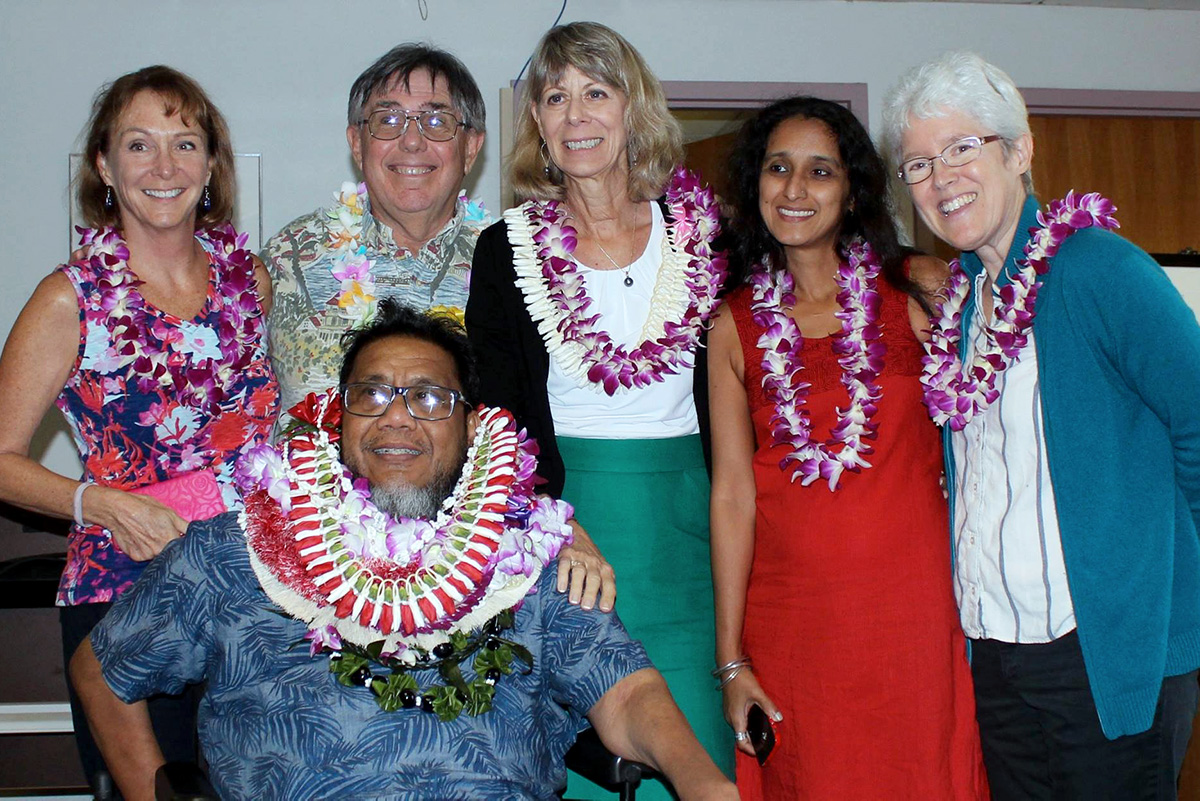PhD in Education
The Ph.D. in Education – Exceptionalities track is designed to prepare professionals to work as leaders in the education and support of individuals with disabilities. Doctoral students in the Exceptionalities track are expected to be grounded in scholarly literature and research related to Exceptionalities as a broad professional discipline. Students are expected to understand the foundations of the field and to gain a depth of understanding in their areas of emphasis under the mentorship of faculty members.
Students, with guidance from faculty mentors, pursue an area of in depth study which furthers the field’s understanding of theory and practice related to specific areas of scholarly interest in Exceptionalities.
Graduates of the program are prepared to take on faculty, research, and leadership roles addressing local, regional, national, and international issues in fields of special education and disability studies.
Common career paths for our graduates include:
- Higher education faculty in special education and related fields
- Special education administrators at national, state, district, and school levels
- Special education researchers
- Leadership roles in nonprofit or for-profit agencies serving individuals with disabilities
- Roles in program development and evaluation
Admission Requirements
Eligibility
- Master’s degree from an accredited university or college. The standards of the degree in question must be equivalent in both the distribution of academic subject matter and scholarship requirements to those maintained at the University of Hawaii at Mānoa.
- Minimum three (3) years of practical experience in education and/or exceptionalities.
- GPA: 3.0 or higher (4.0 = A scale) or the equivalent in prior post-baccalaureate and graduate programs (e.g., Master’s)
Application Requirements
- Official Transcripts from each institution attended.
- Resumé or Curriculum Vita (CV)
- Statement of Objectives: Must include a narrative of career goals, academic objectives, and research interest(s). This narrative should be written in a clear, concise, and cogent manner
- Three (3) Letters of Recommendation: May be from professors, immediate supervisors in employment, and/or close associates attesting to the applicant’s capacity for leadership and scholarship in the field of exceptionalities
- Sample of Scholarly Writing: Applicants must provide evidence of competency in formal writing. May provide written materials used in partial fulfillment of the applicant’s master’s degree, or journal articles
- An oral interview may also be requested of the applicant by the Chair of the Doctor of Education, Exceptionalities Track program
Additional Requirements for International Students
- A TOEFL score of 600 is required for applicants of degree completion from outside US institutions.
- Financial status verification, official transcripts, including minimum grade point average of 3.0 (4.0 = A scale).
Please refer to the International Student website for more detailed information.
Application Deadlines
| Starting Semester |
General Admission |
International Students |
| Fall Admission Only* |
February 1 |
January 15 |
Admission decision contingent on:
- Sufficient number of qualified applicants to constitute a cohort
- Alignment of faculty research expertise with applicant’s research interests
How to Apply
Tuition & Funding
Tuition Cost
Total credits for the PhD in Education program are approximately 42-54 credits. Credits vary based on the number of courses students choose to take and the duration of individuals’ programs.
Refer to Tuition & Fees for up-to-date information on cost of Graduate-level credits. Current rates (2023-2024) are:
- Resident Tuition: $650 per credit hour, approximately $27,300 – $35,100
- Nonresident Tuition: $1,402 per credit hour, approximately $58,884 – $75,708
Additional information on total costs for the program can be found at Financial Aid Services
Western Interstate Commission on Higher Education (WICHE) and Western Regional Graduate Program (WRGP):
Residents of Western Interstate Commission on Higher Education (WICHE) member states can enroll in this program at a reduced tuition of 150% of the regular resident tuition rate. Please refer to WICHE Program webpage and the Western Regional Graduate Program (WRGP) webpage for more information
Students must have a GPA of 3.0 or above. Eligible students admitted to the PhD program will be assigned the (WRGP) tuition rate by Graduate Students Services at the time of admission (no additional application process is necessary).
- Western Interstate Commission on Higher Education (WICHE) and Western Regional Graduate Program (WRGP): $975 per credit hour, approximately $40,950 – $52,650
Funding Opportunities
Graduate Assistantships: PhD students can have positions as Graduate Assistants in the Department of Special Education and in other departments at UH. All graduate assistant (and other UH employment opportunities) can be found at https://www.governmentjobs.com/careers/hawaiiedu
Scholarships: Refer to http://www.star.hawaii.edu/scholarship
Doctoral Funding Grants: At times there are for doctoral funding via Office of Special Education Program grants. If doctoral grant funding is available, information will be shared with those who have submitted the program “Request More Info” form.
Coursework
The number of credits taken and coursework will be determined with the assistance of an assigned advisor based on chosen area of research. However, all candidates must complete the following:
- College Core Coursework (9 credits):
- Multiple Perspectives on Educational Research
- Qualitative Research Methods
- Quantitative Research Methods
- Exceptionalities Core Coursework (19 credits)
- Seminar on Exceptionalities
- Single-Case Experimental Design
- Grant Development and Procurement
- Advanced Methods for Dissertation Research
- Professional Seminars (4 credits total, 1 credit for four semesters)
- Elective Coursework: Depth/Breadth (12-24 credits)
- Candidates must demonstrate depth/breadth in an area of study pertinent to the field of Exceptionalities. Competence in depth/breadth is demonstrated through coursework and seven portfolio products:
- Academic curriculum vita
- In depth review of the literature in his/her emphasis area
- Research of other scholarly presentation at a national or regional conference related to area of depth/breadth
- Original field-based research investigation or a research and development project
- Grant proposal for extramural funding of activities related to area of depth/breadth
- EDUC 740 or 799: Internship or College Teaching (3 credits)
- Dissertation proposal prospectus
- Dissertation Process
- Proposal (approved and defended)
- Research study (conducted)
- Dissertation (written, defended, and approved)
- Additional Requirements:
- Residency requirement of three semesters of full-time enrollment
- Comprehensive examination (written and oral)
Advising & Faculty
Graduate Faculty in the Exceptionalities program have a range of expertise in various topics in the field of special education and disability studies. Students who are admitted to the program are assigned an interim advisor based on research interests described in their Statement of Objectives (or based on prior personal communication with faculty who have agreed to work with them). Students will have the opportunity to select faculty for their doctoral committee during their PhD program.
Before applying, please make yourself familiar with the research expertise of our Exceptionalities graduate faculty to ensure alignment with your research interests. It is important to identify faculty who will be able to support you with your doctoral research interests. Please refer to the PhD in Education – Exceptionalities handbook (pp. 2-3) for a list of graduate faculty in Exceptionalities.
Prospective applicants can also contact the SPED Recruitment Specialist <spedinfo@hawaii.edu> for questions about alignment with faculty research.
Program Info & Inquiries
For information on program and how to apply, please contact our Recruitment Specialist.




